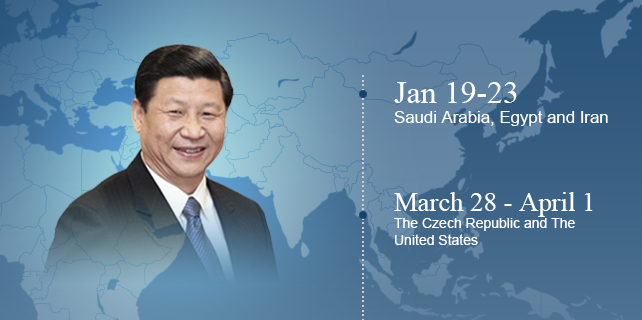Yuan jumps as China's stabilization moves set in
The yuan's surge against the dollar is the result of a strategy to ward off speculators and control the flow of capital leaving the mainland, analysts said.
On Thursday, offshore trading in the yuan soared 1.2 percent in Hong Kong to 6.7869 against the dollar, its highest since early November. China's currency has strengthened 2.5 percent over the past two sessions, putting the currency on pace for the biggest two-day rise since its inception in 2010 and its largest-ever two-day gain against the dollar,
David Dollar of the Brookings Institution in Washington said China's central bank, the People's Bank of China (PBOC), has shown its intention to keep the currency relatively stable with respect to a basket of currencies.
"The brief surge in the yuan-dollar rate at the beginning of the year was to deter speculators from betting against the currency," Dollar wrote in an email.
The PBOC wants to make it harder for investors to profit by betting that the yuan will continue to fall against the dollar due to the slowdown in growth in China and expectations that the Federal Reserve, the US central bank, will have to raise interest rates aggressively this year.
Brendan Ahern, chief investment officer at Krane Shares, a US-based provider of China-focused exchange-traded funds, said minutes from a key Fed committee released this week indicated the pace of US interest rates hikes in 2017 might not be as extensive as the bond market had anticipated.
"The expectation for higher yields in the United States had driven the US dollar versus the yuan and currencies globally. The US dollar is reversing those gains versus the yuan and other currencies based on this new information.
"The president-elect (Donald Trump) wants to enact pro-growth policies to stimulate the US economy," Ahern continued in an email. "If the Federal Reserve were to raise rates it would run counter to those policies while strengthening the dollar further, which would hurt US multi-national companies."
Ahern noted that the yuan's move was also driven by efforts to make it harder to move money out of China.
"(The) PBOC is limiting how money can leave the country in an effort to prevent (the yuan) from depreciating versus the dollar. China is pulling out all the stops to keep the currency from falling and increased scrutiny of outflows has been one measure in the news of late," he said in a research note.
At the beginning of the year regulators left the individual annual foreign exchange purchase quota of $50,000 unchanged. Banks must now report any overseas transfers by individuals of $10,000 or more and starting in July, banks and other financial institutions in China will have to report all domestic and overseas cash transactions of more than 50,000 yuan ($7,201), compared with the current amount of 200,000 yuan.









